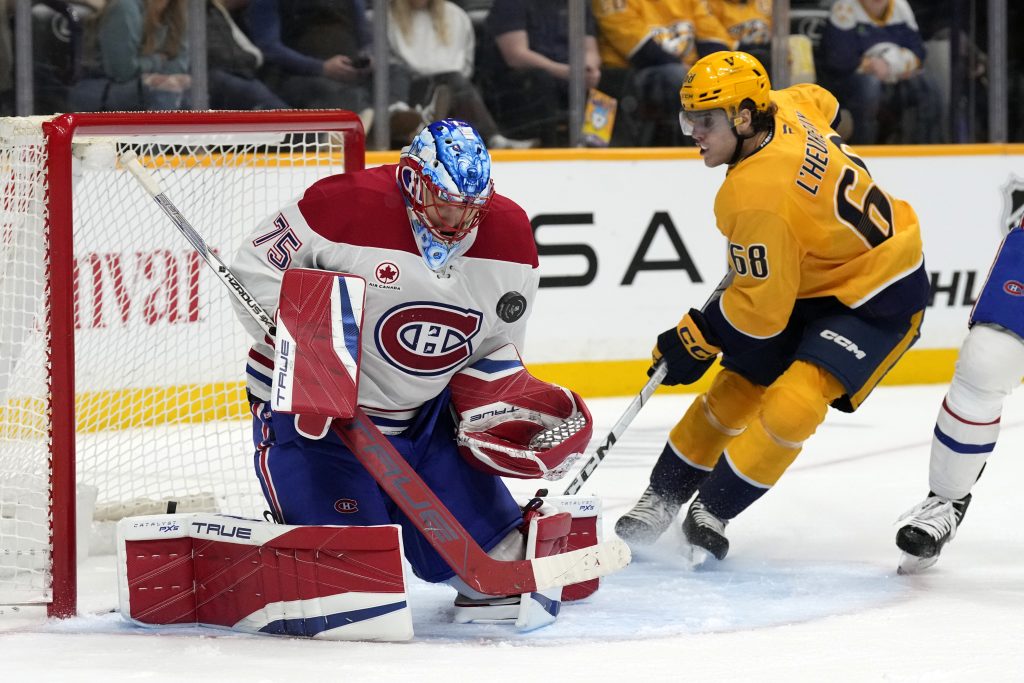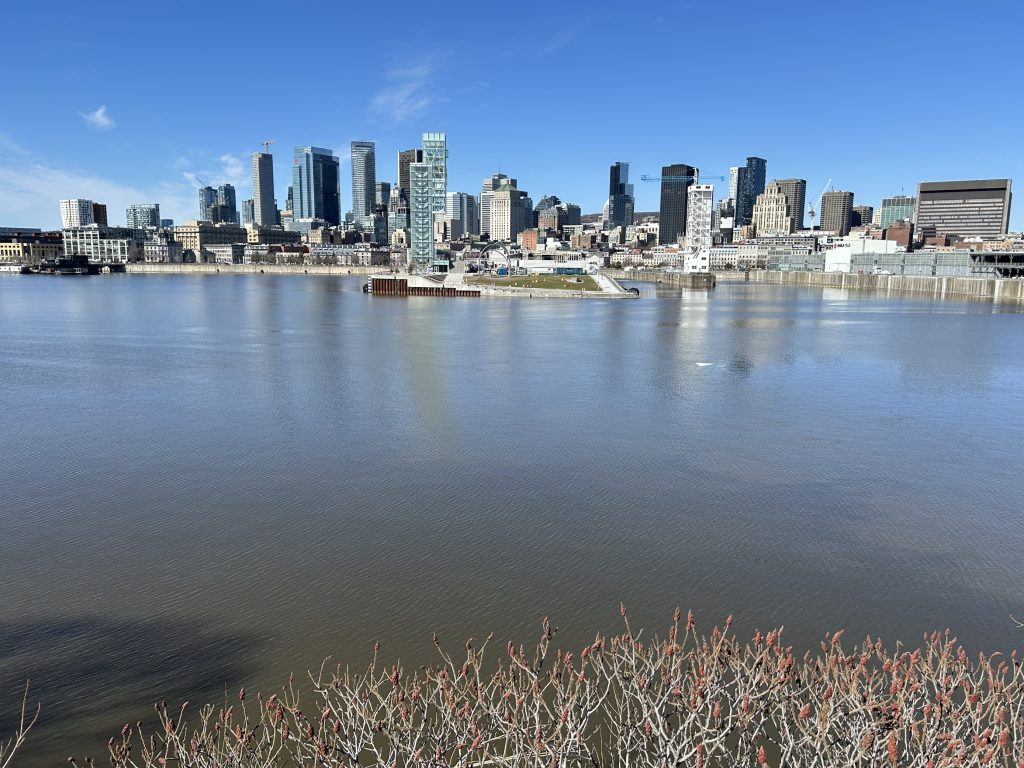‘Sobriety as a catalyst’: Montrealer takes on Dry January

Posted January 15, 2025 7:29 pm.
Last Updated January 15, 2025 9:26 pm.
Montreal athlete Christian Parenteau took up track and field at 14 years old as a way to improve in soccer.
From there, he started cross-country in high school, which led to a bigger running career through high school and university, and continues to this day. He participated in his first half marathon at 18, and ran a full marathon at 21.

His next run is a dry one.
It’s all part of Dry January, a month where individuals take on a personal challenge by not drinking any alcohol.
“It is when you take a month, especially January, and you just decide to have this awareness to your relationship with alcohol, and decide maybe not to drink alcohol during all the month, or you decide not during the week or not during the weekend. You can just manage that, but to have this awareness regarding your relationship with alcohol,” explained executive manager of Éduc’alcool, Geneviève Desautels.
Parenteau says he took on the challenge due to numerous issues drinking creates on the body, especially when training, which is his passion.
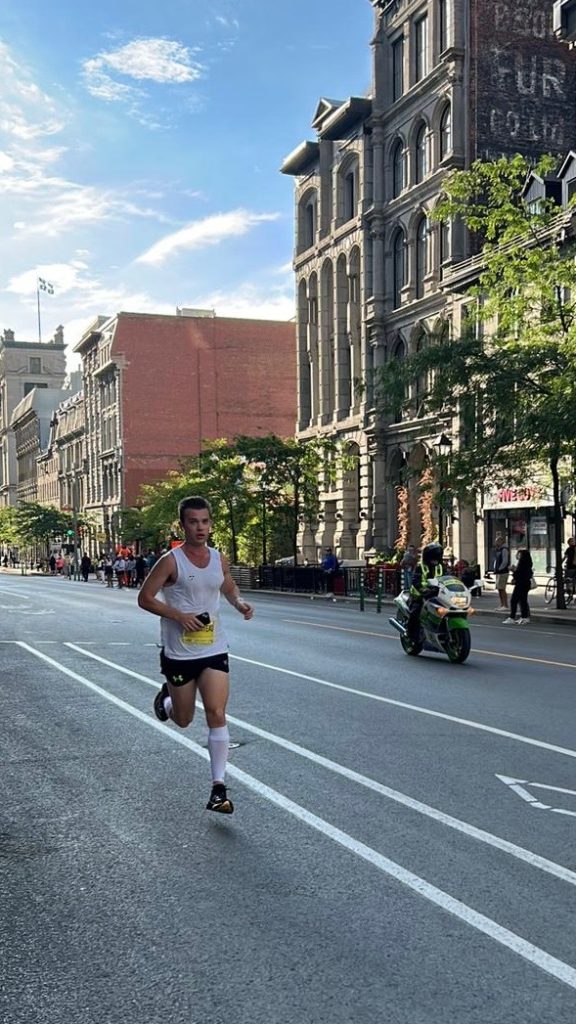
“Dry January is a great initiative. For me drinking takes away from running. It creates inflammation. It’s harder to get recovery in. I don’t sleep as well. So for me it’s just a great initiative to kind of get the year started well to run even better,” Parenteau explained.
“Dry January for me just sits really well with my goals and my passions in my life right now. So that’s why I want to take in.”
Desautels explained that one of the benefits on taking on this challenge is to rethink your relationship with alcohol.

“You know when we say, OK, I will do the Dry January. What do you feel? Just the idea of it. Do you feel, oh my God, will I be able to do so? Can I just have some days that I will be able to take alcohol? Just all those reflections that you have with yourself are very, very good,” she said.
Clinical psychologist, Myrtis Fossey, also explained that: “the interesting thing is once we remove what we’re doing habitually, we see what happens when we don’t do that. And so if you’re used to having, let’s say, drinking just on the weekends, and then you stop doing that, then you see like, well, what do I do if I don’t drink on the weekend? And that can be really enlightening.
“You can figure yourself out like, so why am I drinking? Which kind of brings me to the interesting point about drinking is like it’s seen as a problematic behavior in certain situations only. And doing the dry month allows you to kind of do a reset and to see what’s my relationship like with alcohol. So when I don’t drink for a month, what happens? Maybe nothing happens because maybe you have a good relationship with alcohol and it doesn’t make a huge difference.
“But maybe something really serious does happen and you realize, oh, maybe I drink too much or maybe I drink only because I’m nervous in a certain situation, or maybe I drink because I can’t fall asleep at night. And these are not great reasons to drink, so you might want to check those. And not drinking for a month would give you a chance to understand that about yourself.”
Although Parenteau isn’t one to drink much, he used to do it socially.
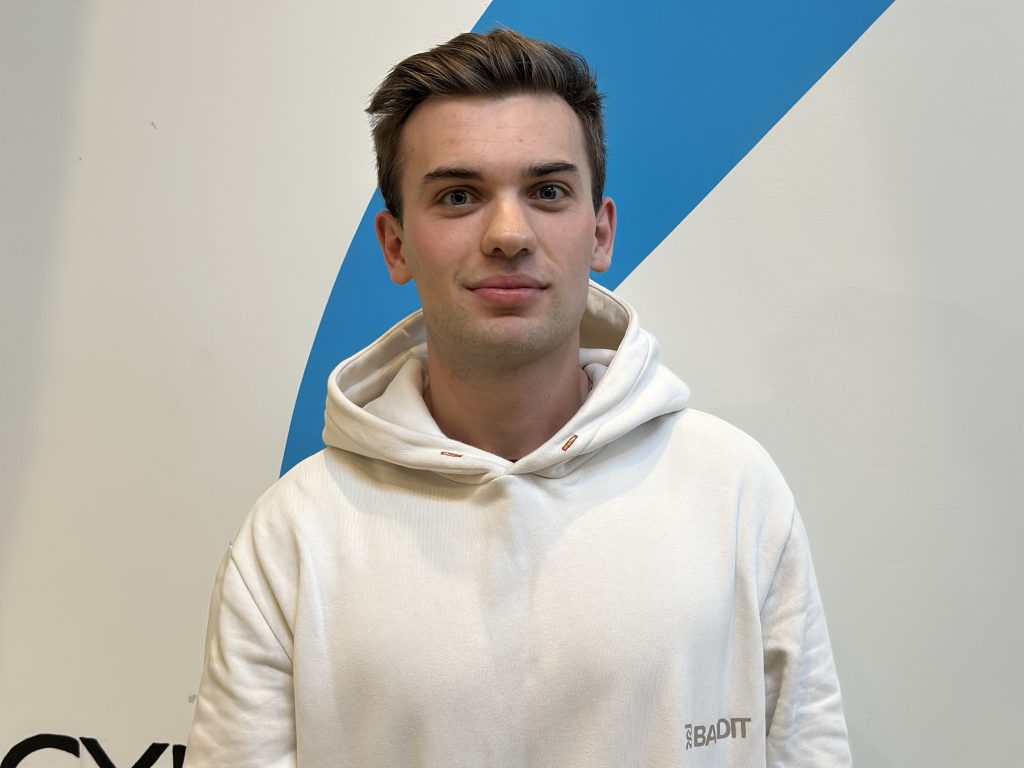
“I think most people just prefer not to go out and drink or have the option not to. There’s a huge social stigma against going sober in events. So if you’re going out for a beer, everyone wants to go out and perform and have a good time and alcohol is usually part of that,” he said.
“I think that with more people taking this on Dry January, it allows people to have that freedom not to have to drink and not have that social pressure to have to have a drink when you go out with your friends. So I really hope that this helps that initiative. For me I can see that it is tough sometimes when you go out on a Friday or Saturday night, couple of friends are having glass and wine, you want to partake in that.
“This initiative, this movement allows you to have a bit more freedom to do what you really want to do and not have that social pressure to drink. So I really hope this takes off and for me it is difficult but it’s a great challenge to start the year off in 2025.”
Desautels explained the importance of being aware of not binging on other things while taking a break from alcohol.
“You have to be aware not to take more chips, more chocolate, more coffee, or more cannabis, or more, you know, other things. Just to be sure that alcohol will not be replaced by another, I would say, kind of substance or food of beverages,” she said.
“You have to think of what you want to have as an experience. Do you want to, you know, feel the benefits of being dry, or you want to stop alcohol to taste or to feel or to replace it with other things. It depends on you. It’s your own conscious choices.”
Fossey explained the health benefits when individuals take a break from alcohol. She says psychologically, she thinks it’s a good idea every once in a while to do a reset.

“We tend to get into habits, good and bad. And once in a while, it’s nice to kind of change up the system. And if we think about even physiologically, like if you go to the gym and you work out, you’re not supposed to work out the same muscle groups every day. You’re supposed to kind of change it up and take a break. And if you don’t do that, then you’ll get injury and you’ll get pain and things like this. And then the other groups that you don’t work, kind of atrophy. So physiologically, you’ll experience some benefits to taking a break from anything you do too regularly, because then when you resume, you’ll feel it better or differently,” she explained.
“And then in terms of alcohol, it’s really a good idea to give the liver and the kidneys and all of the systems a break, just like you would want to do for all kinds of other toxins. So whether that’s a detox, sometimes people do detox for whatever. They do intermittent fasting or these other things where it’s giving the body a chance to recover itself and to kind of go back to baseline.
“So I kind of think of it like at the end of the holiday period where you have three categories of things you need to get rid of. So you have your garbage, you have your recycling, and you have your compost. So like the wrapping paper from the Christmas presents, that’s going to be going and recycling. And the garbage from the plastic wrappers, let’s say that’s going to go in garbage. And then you have your compost, which might be like your Christmas tree.
“And in the same way, you want to decide how you’re going to deal with your toxins that you’ve ingested over the holidays. So you’ve probably eaten a little too much, maybe some fatty foods or some sweet foods. You probably drank a little too much. And so it’s a good idea to kind of give yourself that month of triage to kind of let all the recycling go out and be handled, all the garbage be handled, all of the compost be handled. So I kind of think of it as a reset in the same way.”
Parenteau believes that not drinking alcohol will have long-term effects on his overall running and performance.
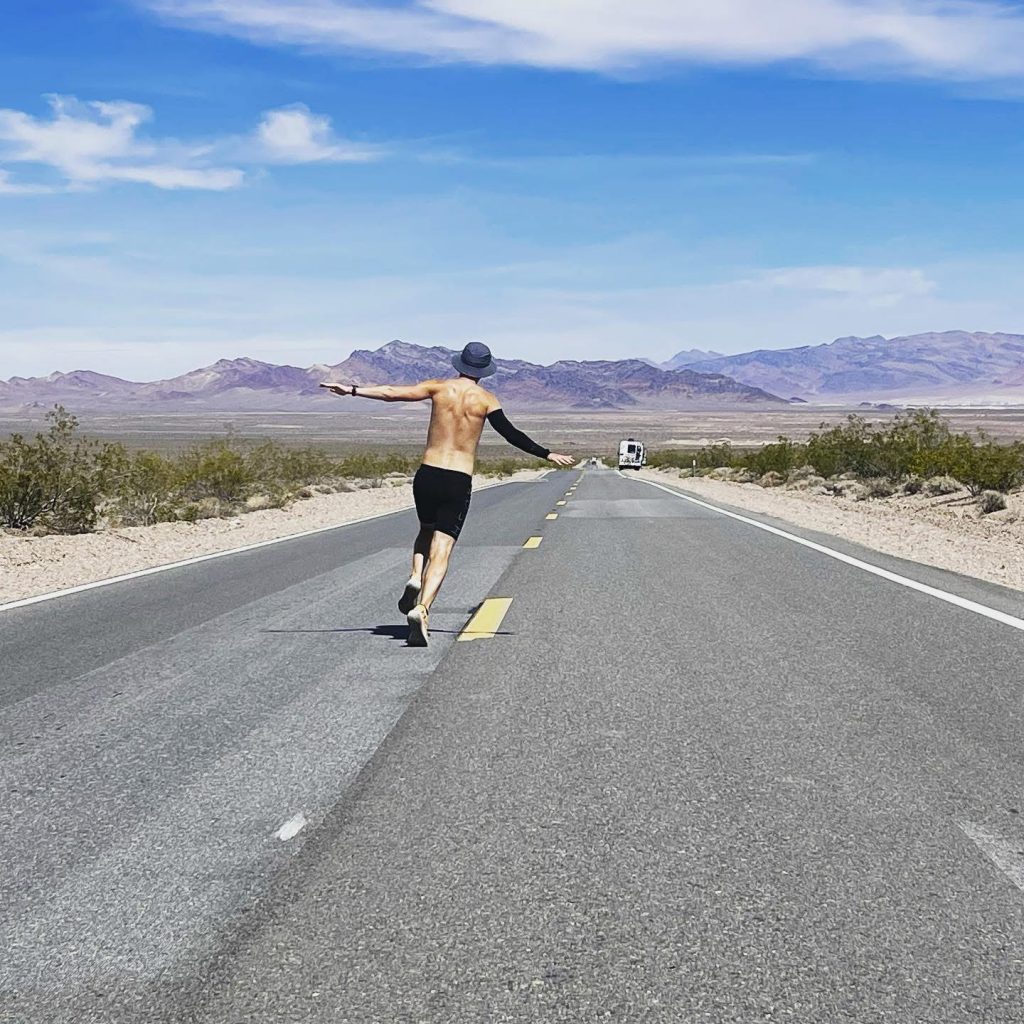
“I think alcohol is an immediate negative to running and my goals and my passion. So as I continue not drinking or being sober as they say, I think I’m going to be becoming a better runner, a better person and in general performing at a higher level and that’s my goal, right? Right now I’m an ‘amateur athlete’ and I really want to hit these certain goals over the next two, three years and not drinking really helps align myself with those goals at a better level,” he said.

“With recovery it’s super important. So with alcohol it affects your sleep, affects your mood. It doesn’t allow you to sleep as deeply. So REM sleep that helps recover when you’re running so much. I’m running right now six days out of seven. So for me anytime that I don’t get enough sleep or that alcohol kind of affects more or less my day-to-day recovery, my sleep and also my mood it’s not great. So taking care of Dry January allows me to perform better at running but also at work and my day-to-day life with my friends and family.”
Fossey agrees.
“If you’re drinking and you’re ingesting a lot of alcohol, you’re not ingesting other things that are more nutrient dense in terms of getting performance,” she said. “So if you want to have, like, you probably want to have good lean muscle, you want to have a good cardiovascular health, and all of these things are going to be undermined by ingesting calories in a significant amount that aren’t as good quality for you.
“Now, I’m not saying that the occasional glass of wine is a problem. I think that’s fine, everything in moderation. But for sure, if you’re going to be trying to be an elite athlete or doing an elite performance, then you want to put everything on your side, and alcohol is going to undermine that because it’s the wrong kind of carbs. So you’re going to want to get your carbs in a different way, and you’re going to want to get high density, rich foods in your system to feed you, to nourish you so that you can perform.”
Parenteau says he’s inspired by his best friend Mackenzie Bauer, who lives in Toronto.
“He has not been drinking for over two years and he’s a great kind of leader in that and I want to kind of look up to him and I’d like to use this as sobriety January, so Dry January, and actually look at him and maybe in two, three years from now still be sober and running at a level that he’s running at and he used sobriety as a catalyst as well.”

Desautels explained that you are not required to justify your choice for deciding to not drink any alcohol, as sometime people face challenges with explaining their choices to friends and family.
“You know what? You don’t have to just make a huge announcement of it, because with non-alcoholic beverages are so, you know, available, I will say, everywhere. You can have that glasses, you know, that’s because it’s social and we like to have the glasses in our hand, but it’s not mandatory to have alcohol in it. And you just bring your own alcohol or non-alcoholic beverage, depending on the choices that you’ve made, and it will be perfect. And you just don’t have to justify yourself, you know, with why you’re doing Dry January and what you expect for it and everything. It’s your own business,” she expressed.
Added Fossey: “If you’re very concerned with what people think about you, that’s going to probably be a problem for you. I think more and more, though, people are understanding that the relationship with alcohol needs to be investigated. And I’m saying certainly in younger populations that people are kind of moving away from alcohol. And they’re realizing that it’s maybe dumbing them down or numbing certain things that they don’t want to have numbed. And so they would rather experience life sort of more fully, and they don’t want to sort of be stoned and drugged out, not feeling like themselves. They want to be fully aware and fully participating mindfully in their experiences, whether that’s going out to a bar or whether that’s hanging out with family over a meal. So yeah, I think that this is a good chance to reevaluate why you do things and the way in which you do them.”
Dry January aligns with Éduc’alcool’s mission to promote responsible drinking.
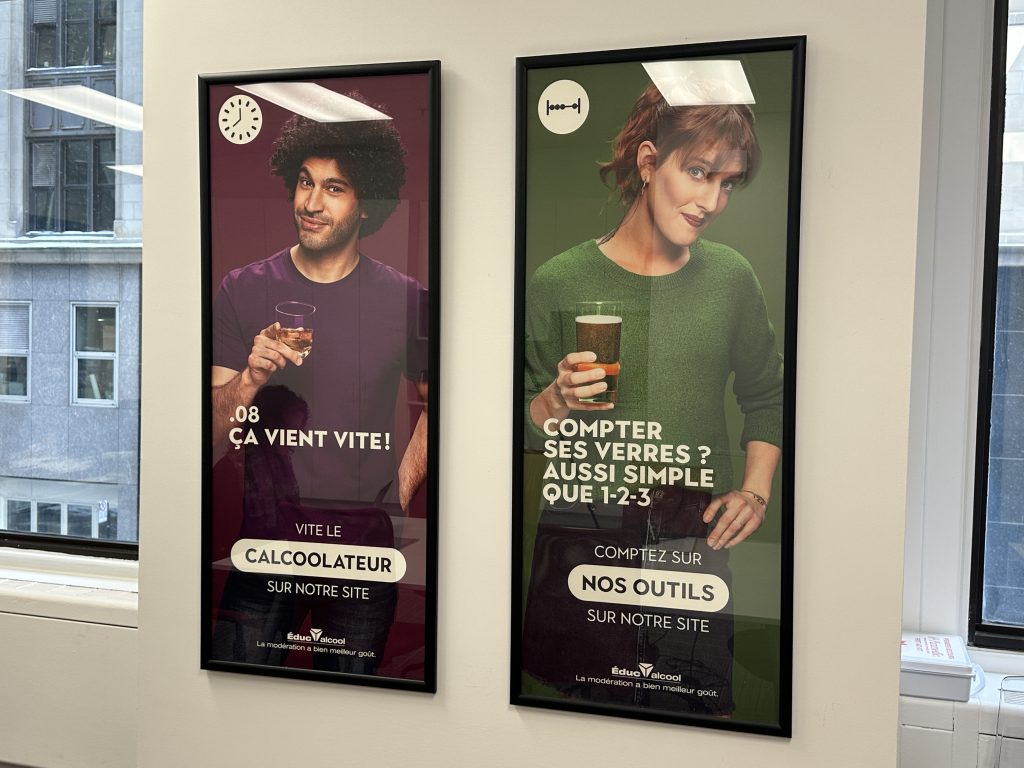
“Just the fact that you asked yourself, why do I drink? It was the theme of our last campaign. Why do I drink? Do I drink, you know, to celebrate? Or maybe to avoid, try to avoid the stress or to be, I would say, more funny during a party or so. Just having that reflection with yourself, it’s so aligned with the conscious choices that we want to educate and inform people about it,” Desautels explained.
For those who have misconceptions about Dry January, and if it works, Desautels said, “Just do it. You will feel it by yourself. And maybe after the month, you will say, oh my God, I have a craving for alcohol on the 1st of February, or you know what, it was OK. Or maybe I didn’t see the benefit. And if you don’t see the benefit, maybe it’s because you just drink very moderately or almost no alcohol, so it’s normal.”
For those trying Dry January for the first time, Fossey said it’s important to take the pressure off yourself.
“I don’t like to tell people to think of it as dry month, as a sort of black and white concept, that you have to do it perfectly, otherwise it’s not good enough, because that creates a whole other anxiety. So if you think like you can’t drink for the month, and then you start to, all you can do is think about drinking all month, it’s not going to be very helpful. So you kind of want to be a little bit easier with yourself and say, I’m taking a rest, I’m taking a break, and I’m investigating.
So rather than say it has to be January and then, you know, until Feb. 1, I can’t touch the stuff, then all you’re going to do is you’re just going to wait the whole month out to drink on Feb. 1. And that’s not going to be really that helpful. Whereas if you say, look, I’m just taking a break, and I want to see what happens when I don’t drink for two days, or seven days, or two weeks, or five weeks. And sometimes people, their dry January becomes like dry 2025. And then they realize at the end of the year, like, oh, wow, I feel really good, I sleep really well, I don’t need to drink to have a good time, people understand that I no longer drink, it’s not that big of a deal. So I think that, you know, it can be just take the pressure off, give it a shot, see what happens. You might be surprised.”
Fossey said she had patients who have had positive results after completing Dry January.
“I’ve had actually quite a few patients report that they felt so good after doing it, so proud of themselves, that they kind of wanted to challenge themselves to go even longer. And so sometimes it starts out, like I said, starts out as dry January and ends up being a dry year, and then they’re like, this is easy. I don’t need to drink anymore. Like, drinking is like a waste, you know? And so they feel quite empowered over their substance use, and they feel like it’s a choice, and they’re not obligated. And usually they’re more sort of assertive, and they have a confidence boost as a result of that. So that can be a fun side effect, too,” she said.
“I think it’s a great idea for everyone to try every once in a while to change the system up a little bit. Whether it’s dry January or whether it’s just a dry week, I think it’s worth a shot.”
As for Parenteau, he is challenging himself to go beyond Dry January.

“I think dry January is a catalyst to having a healthier lifestyle. I think a lot of us in our mid to late 20s are really trying to see what else is out there, right? So alcohol is a big portion of culture especially in Canada and Montreal itself. And for us, you know, I think dry January is a good starting point to kind of start looking at sobriety, not as a problem but more as a solution of not drinking and to look at other solutions like running, like joining up for a run club for example or going out and just having drinks but not like mocktails, right?
“And so drinking doesn’t have to be a social lubricant, it could also just be used to just hanging out without alcohol involved. I think you actually have deeper conversations when you’re not using alcohol as a bit of a crutch to kind of create that relationship with people.”

“And so for me, I think dry January is a good starting point but I actually would like to continue being more or less, it’s a weird term to say, but sober, I don’t have a problem with drinking but I think I’m a better person without drinking I would say.”


